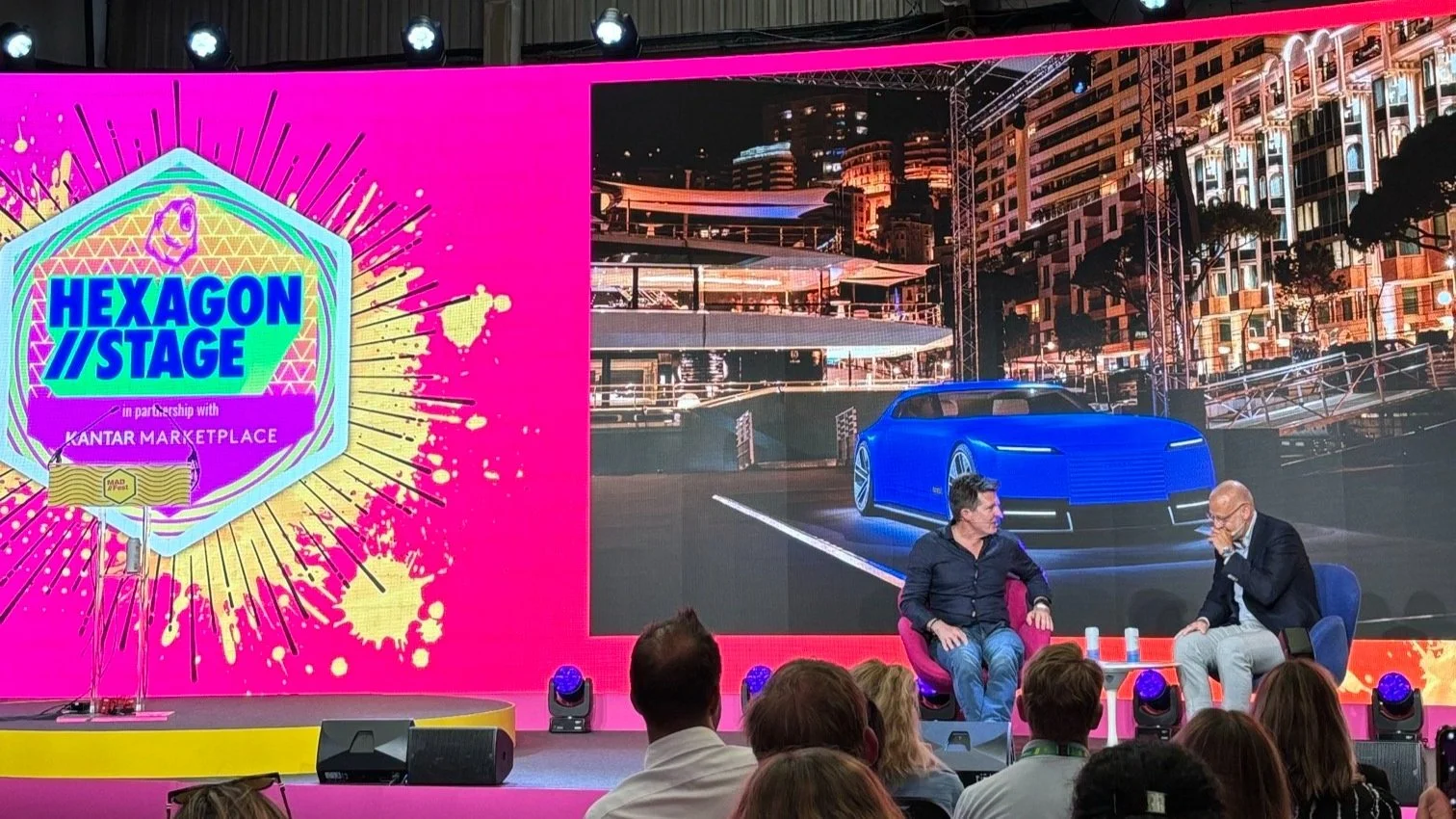The Brand Lessons We Learned at MAD//Fest 2025
This week, our team were front and centre at MAD//Fest, soaking up the latest marketing insights from some of the biggest brands and creative leaders in the industry.
Throughout the week it became clear that brands are continuing to navigate how to stand out in a digital-first world. With audiences overwhelmed by content and facing a collective ‘brain rot’ from media overconsumption, it's getting harder for brands to cut through and truly connect. As Manashi Guha, Chief Growth Officer at L’Oréal emphasised, “We need to be much more adaptable and less boring as there’s limitless information available to consumers today”.
Here are some of the key takeaways that can help digital campaigns and IRL activations break through the noise:
True connections take time
In her session, Gursharan Panesar from Seen Studios emphasised the need to move beyond one-off creator campaigns. Communities aren’t built on transactions, they’re built on consistent, long-term relationships, which means bringing creators in early, letting them help shape the story, and showing up with them over time.
This sentiment was echoed by Nikki Neuburger, Chief Brand Officer at Lululemon, who shared: “It’s not how fast you go, it’s how you cross the finish line.” Lululemon invests in more than just product drops or branded spaces, they create activations which create lasting impact. As Nikki put it, “You have to nurture a forest, it doesn’t happen immediately.”
Be intentional about where and how you show up
Dirujan Sabesan, CMO at Wingstop UK, highlighted how the brand challenges the integrity and purpose of every opportunity that comes their way before diving in. He explained; the brand chose to create its own music festival, HXR Fest, rather than investing in crowded festival sponsorships, as it made more sense to build a cultural moment from scratch. They delivered deeper audience engagement and more authentic impact by having complete ownership of the festival.
Julia Goldin, Chief Product and Marketing Officer at LEGO, shared a similar approach. LEGO doesn't rely on traditional sponsorship for visibility, but they choose partnerships rooted in shared values. Their F1 partnership, for instance, isn’t a simple logo placement, but instead taps into a passion point through collaboration. This strategy also informs their activations like the LEGO Botanicals pop-up in Covent Garden, designed to resonate with a growing audience of adult fans, especially women, by tapping into lifestyle interests like wellness and creativity.
Emotional connection is still the most valuable currency
In her session, Julie Legrand, Senior Director of Global Brand Strategy & Communications at Puma, shared a powerful stat from a previous study: 60% of people wouldn’t care if Puma disappeared tomorrow, which was a stark reminder of how easily brands can become forgettable.
Puma responded by showing up in more unexpected, emotive ways, for instance their bold “Go Wild” campaign earlier this year. One standout moment of the campaign was Puma’s “Chase the High” activation during the Boston Marathon weekend, where over 50 runners from around the world took part in a race with hidden checkpoints around iconic Boston landmarks. This activation captured the human instinct felt when playing sport to authentically engage consumers in Puma’s brand during an established event to stimulate real, emotional connections.
Ben Fox, Chief Marketing Officer (UK) at McDonald’s, echoed this sentiment by explaining the brand’s shift away from messaging focused solely on speed and convenience. Instead, they returned to what they call “show business,” emphasizing the joy and nostalgia the brand inspires rather than just the product itself to fuel brand love and drive authentic engagement. For example, the brand highlights the delight of someone’s first McDonald’s experience or, the excitement tied to opening a Happy Meal rather than the product itself, connecting consumers through emotion.
Technology is a tool, not the main event
There was a lot of discussion around AI and tech, but the clear consensus was that these are enablers, not substitutes for strategic thinking or human connection. Alex Hoffman from Passion Digital, emphasised AI ‘should be seen as an add-on tool rather than the strategy itself’.
In fact, during the panel session titled ‘Less F*cking Boring’, Fleur East highlighted that the rise of AI only strengthens the need for genuine human connection, underscoring the complementary, and harmonious relationship between technology and authenticity.
Overall, MAD//Fest 2025 was a reminder for brands to be emotionally relevant, show up with purpose, and collaborate with intention. When you focus on people first, authentic connections and game-changing results will follow.


